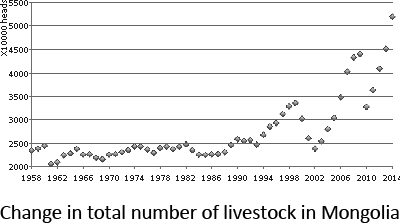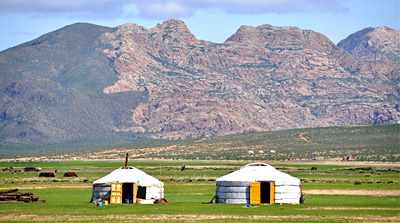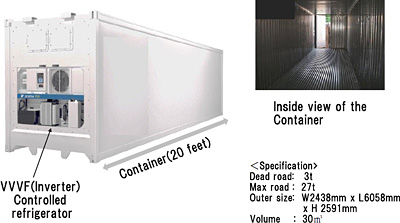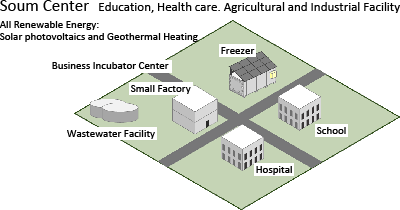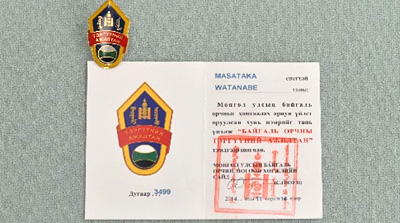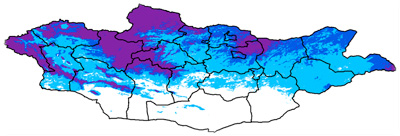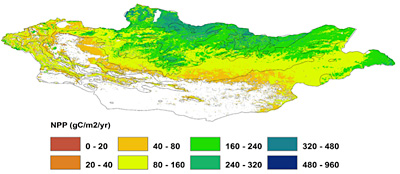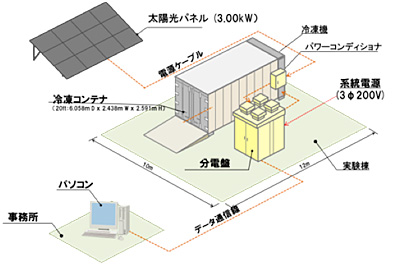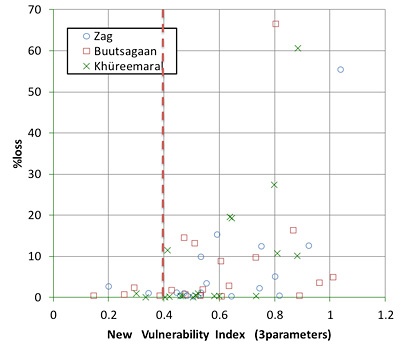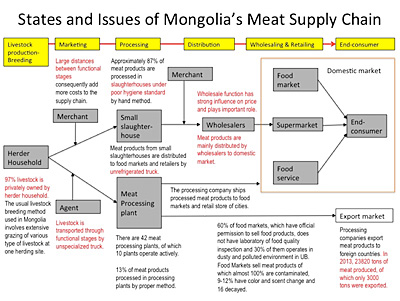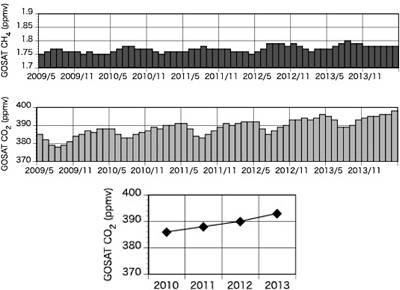The key purposes of this project are to prevent grassland degradation through green development and to design, propose, and introduce a meat storage system based on freezer storage technology using renewable energy, as well as to establish measurement, reporting, and verification (MRV) methodology to use the Greenhouse Gases Observing Satellite-2 (GOSAT-2) to assess and verify success in reducing emissions of greenhouse gases (GHGs) such as carbon dioxide (CO2) and methane (CH4). In order to implement the project, we created a framework as described below in Mongolia, where the project is under way.
We started by holding a workshop at the National University of Mongolia (NUM) on November 11, 2014, inviting 21 participants from Mongolia, including the Special Envoy for Climate Change at the Ministry of Environment and Green Development (MEGD) and representatives of research institutes affiliated to MEGD, as well as representatives of NUM and government agencies including the National Development Institute of Mongolia (NDI), and environmental policy makers and researchers.
Mongolia’s then Minister of Environment and Green Development, Sanjaasuren Oyun, had observed that Mongolia needed a freezer storage system driven by renewable energy based on implementation of the JCM, and had requested that the project be advanced as a specific policy. In response to this request, we held a workshop at Chuo University on January 13 and 14, 2015, inviting a total of 10 participants from the Mongolian side, including the Counsellor to the Minister for Environment, Green Development and Tourism; the Director of the Institute of Meteorology, Hydrology, and Environment (IMHE); an institute director from NUM; and researchers. The above two workshops enabled both the Mongolian and Japanese sides to confirm what had been agreed with regard to the project’s fundamentals. The workshops also enabled NUM and Chuo University to launch a joint research body, the Institute for Sustainability Development, to set up a joint office, and to sign a memorandum of understanding with the participation of IMHE and NDI.
Within this framework, we put in place a structure to conduct joint testing of freezing and refrigeration systems and other equipment with the help of the NUM’s professors who were conducting research on solar power generation and managing the facility at its Ovorzaisan outdoor test site. The results of these tests were communicated globally via presentation at the UNEP Global Adaptation Network Forum to be held in Panama on March 6 and 7, 2015. Then, on March 17, the role of this joint research project within a series of bilateral policy discussions were described at the Japan-Mongolia Environmental Policy Dialogue to be held in Tokyo.

